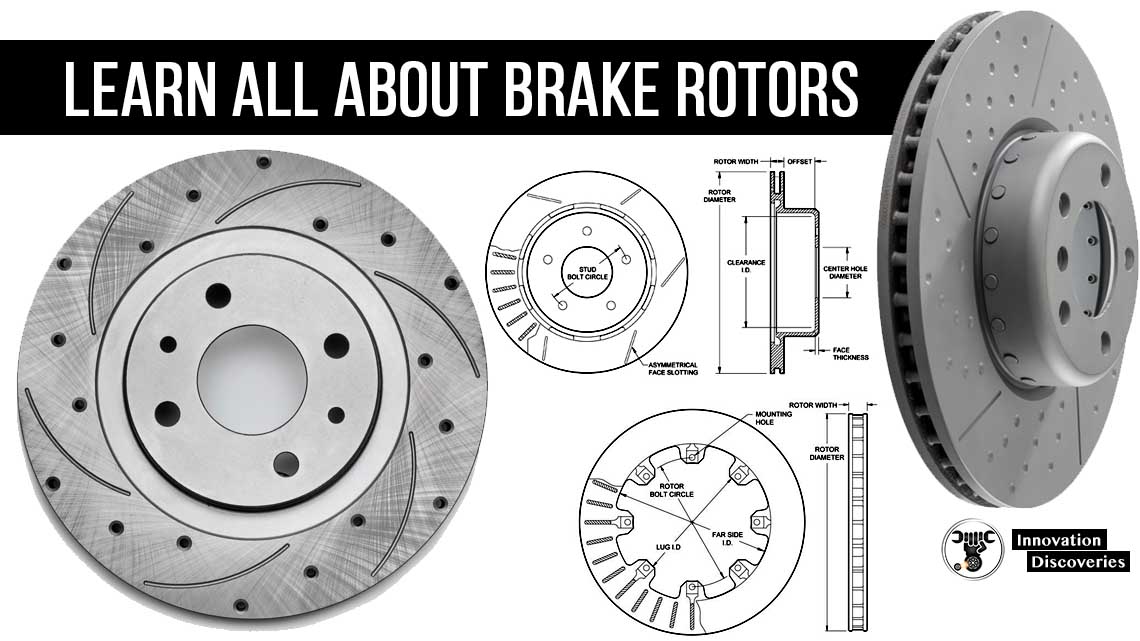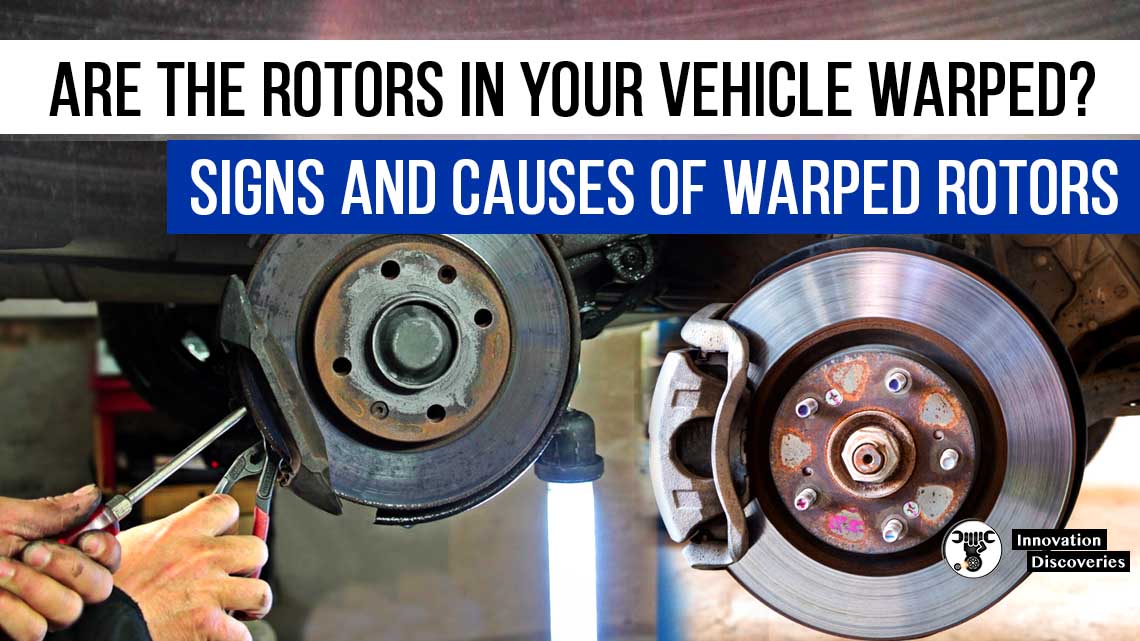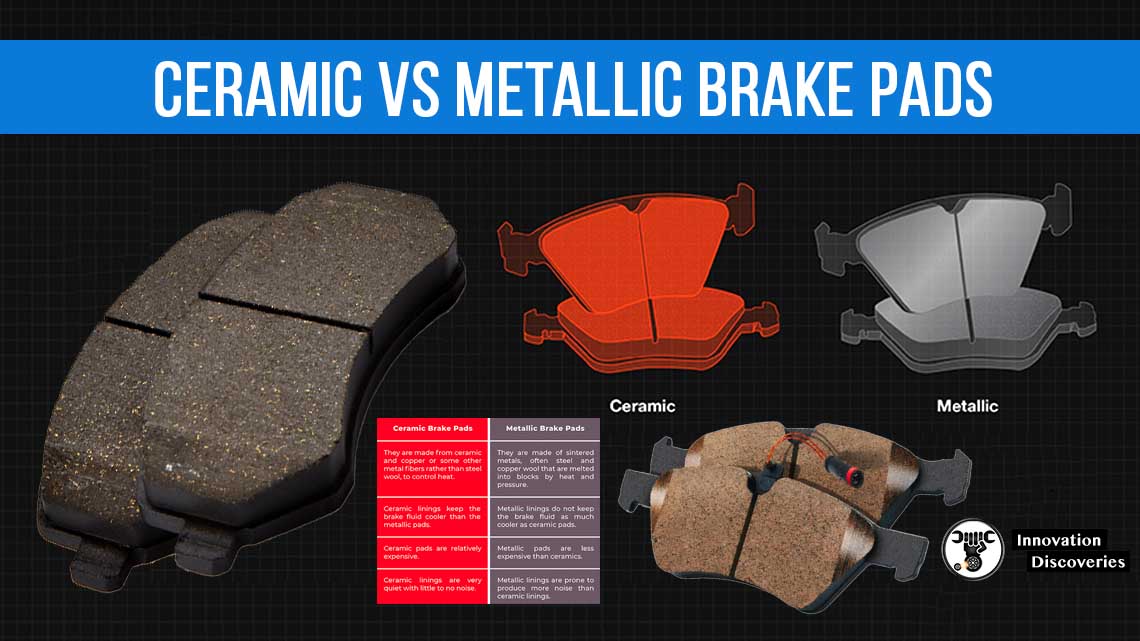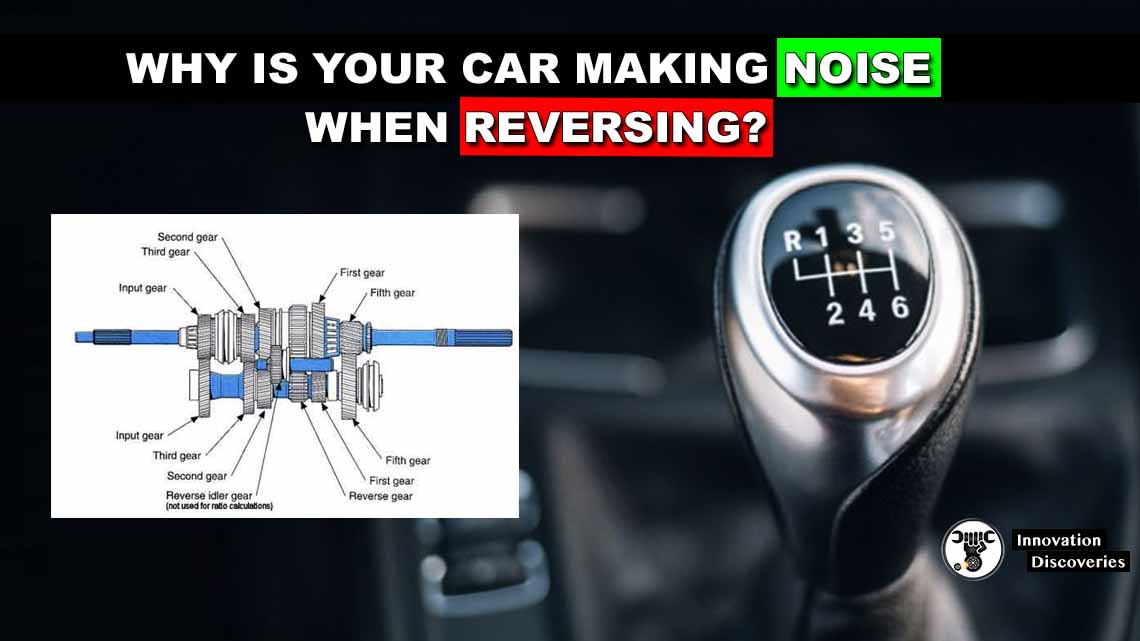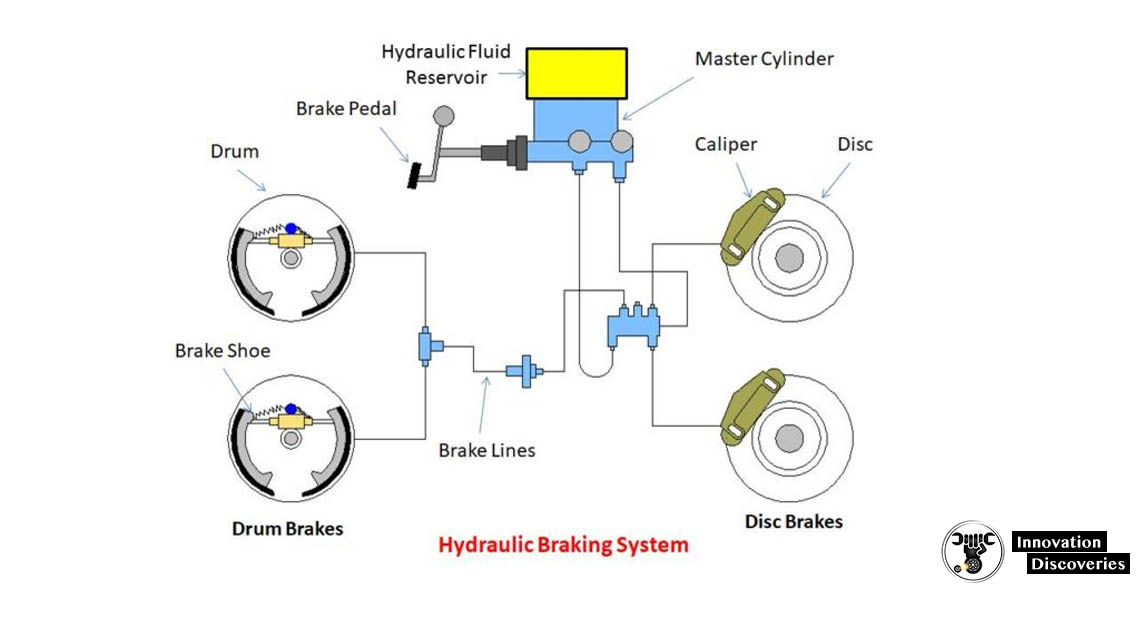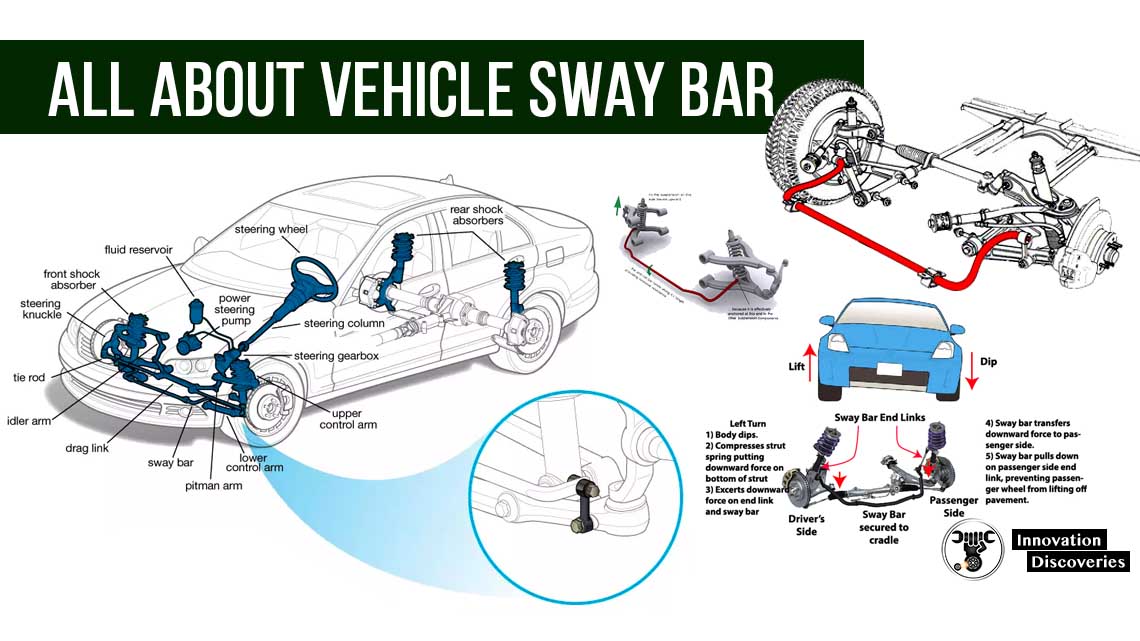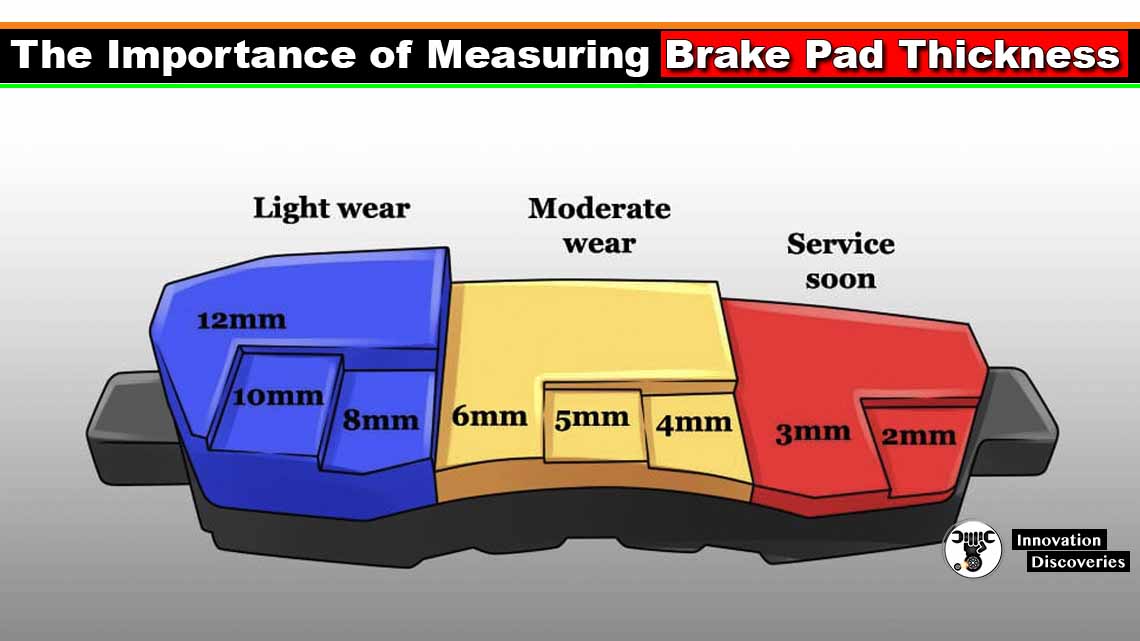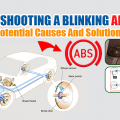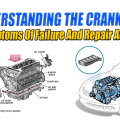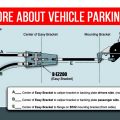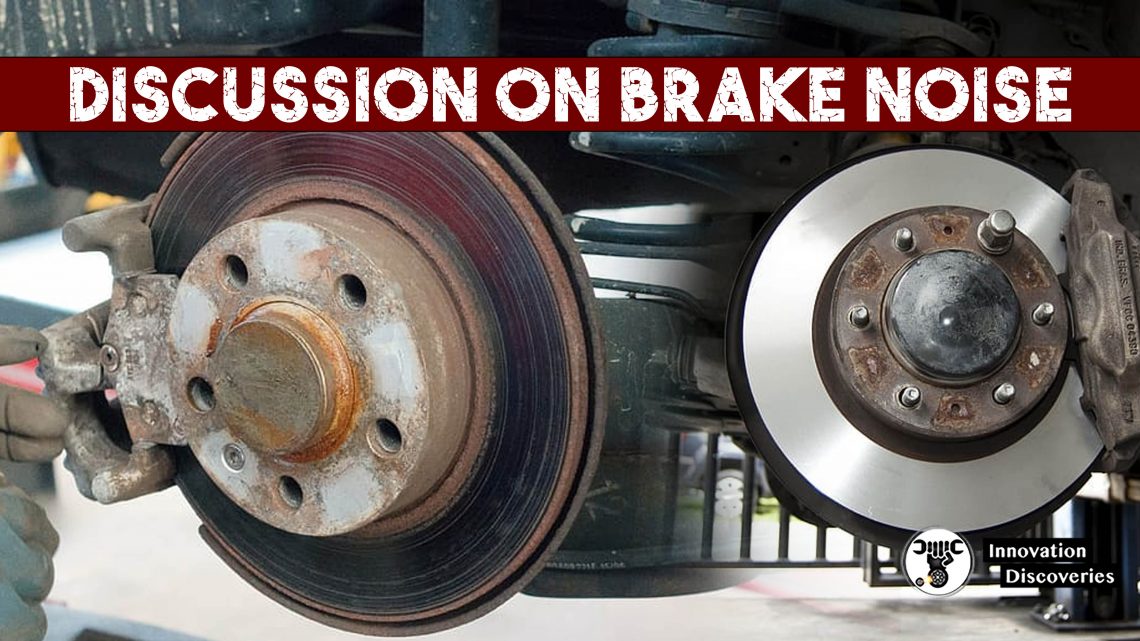
There are a lot of different brake noises out there. These noises are indicators of different problems with the brake system.
Some noises from underneath the vehicle are often mistaken as brake noises. This is due to the fact that these noises happen when you apply the brakes.
Being able to identify these noises and know what’s causing them will help you determine a proper solution.
High-Frequency Squeal
The cause of a high-frequency squeal is easy to identify and fix. Many brake pads have a brake wear indicator on them.
The indicator is a piece of metal connected to the pad’s backing plate or shim.
The piece of metal protrudes about two to three millimeters past the backing plate.
When a pad wears down past two to three millimeters, the metal will make contact with the rotor.
This produces a high-pitched squealing noise.
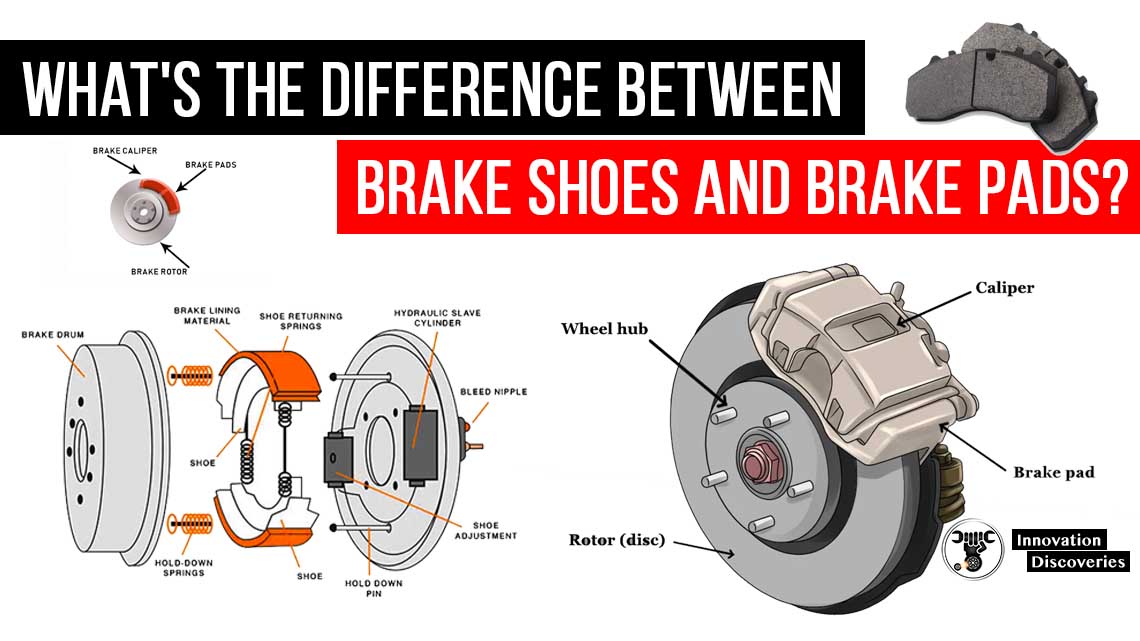
Low-Frequency Squeal
A low-frequency squeal is the result of the pad vibrating against the rotor. This noise is especially prevalent in semi-metallic pads.
Moaning Noise
Brake moans are typically caused by moisture built up in drum brake assemblies.
When the brake shoes contact the drums during light braking, the moisture causes a moaning sound.
Also, Read:
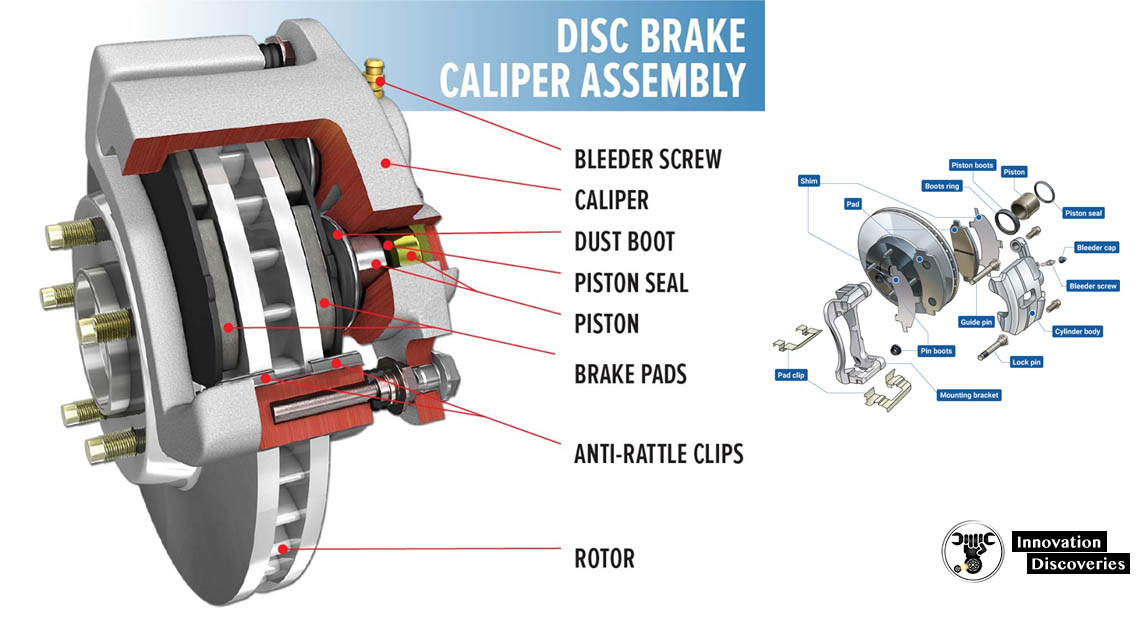
Metal-on-Metal Noise
A metal-on-metal noise when you’re braking means your brake pads are worn out completely.
The metal-to-metal noise is the sound of the backing plate against the rotor. The noise is also often described as a grinding sound.
Clunking/Thumping Noise
A clunking or thumping noise is often confused as a problem with the brake system. This noise is. usually heard when you hit the brake pedal.
However, chances are the problem lies elsewhere in the vehicle.
Suspension Issue
The problem most likely lies in the suspension of your vehicle. When a shock or strut goes bad, you may hear a thumping or clunking noise when you brake.
At the same time, your vehicle may be nose-diving during braking. That is a key sign that there is a problem with your suspension.
Read More About Suspension Systems
- SUSPENSION INSPECTION – QUESTIONS AND ANSWERS
- SUSPENSION ELASTIC ELEMENTS
- HOW AIR SUSPENSION SYSTEMS WORK
- 5 SUSPENSION MODS YOU SHOULD NEVER DO TO YOUR CAR
- HOW CAR SPRINGS AND DAMPERS WORK
- ALL ABOUT VEHICLE SWAY BAR
- STRUTS MOUNT AND STRUT BEARING | Q & A
- LEARN ABOUT YOUR SPRING CHECK-UP
Brake Cable
Another explanation may be the brake cable is loose or has too much slack in its brackets.
If this happens, you may hear a thumping noise of the cable hitting against your vehicle when you brake.
Loose Caliper Bracket Mounting Bolt
A loose mounting bolt that holds the caliper bracket to the vehicle may be the issue.
This is an uncommon problem, but it may be the cause of a thumping or clunking noise.
Chirping Noise
A chirping noise coming from your wheel could mean a couple of different things.
If the noise is rhythmic, this could mean something is making contact with the wheel as it rotates. The other cause for this noise may be the brake wear indicator.
The high-frequency squeal caused by the brake wear indicator contacting the rotor is often described as a chirping noise.
Rattling Noise
Rattling noises when driving are common, especially when going over bumps. If the rattling noise is present all the time when driving, then it may not be brake-related.
This could be an issue with your suspension or your shocks.
If the rattling noise is only present when you are braking, then it’s most likely a brake issue.
There are a few potential sources of rattling noise in the brake system.
Caliper Rattling
First, you will want to make sure that your caliper is operating correctly. If a piece of the caliper is loose or worn out, it can cause a rattling noise.
Brake Pad Rattling
Make sure that you replace the hardware on your brake system every time you do a brake job.
Hardware like abutment clips and anti-rattle clips allow your pads to slide properly when applying the brakes. But they also help keep your pads in place when you aren’t braking.
Groaning Noise
If you hear a groaning noise when you are braking, the problem is most likely not brake-related.
When you apply the brakes, your suspension will typically shift down a bit.
This means suspension parts like the control arm bushings, ball joints, and the sway bar links are moving down when you stop.
If any of these parts are loose or worn out, they could be causing the groaning noise you hear.
Repair Procedure:
High-Frequency Squeal
A high-frequency squeal is caused by the brake wear indicator contacting the rotor. This is a good sign that your brake pads have worn to dangerously low levels.
If you hear a high-frequency squeal, it’s time for new brake pads.
Low-Frequency Squeal
It isn’t much you can do to fix this noise. Still, there are steps you can take to mask a low-frequency squeal.
Many manufacturers take steps to help lessen low-frequency squeals.
- Make sure that you buy pads with a high-quality shim. The shim is there to deaden that low-frequency brake noise. The better the quality of the shim, the less noise you will hear.
- Sometimes you will see weights on the backing plate. These weights help to deaden the noise of a low-frequency squeal.
- Manufacturers add slots and chamfers to brake pads to help control brake noise.
Make sure to keep these factors in mind when choosing a brake pad.
Moaning Noise
After applying the brakes two to three times, the moisture built up in the drums should be gone.
This should cause the moaning noise to stop.
Metal-On-Metal Noise
If you hear this noise, you need to change your brake pads immediately.
You will cause damage to the rest of the brake system by continuing to drive with no friction material.
Clunking/Thumping Noise
If the issue isn’t suspension-related, start by checking out the brake cable.
Make sure that the cable is not loose and connected to its brackets.
Next, inspect the caliper to make sure that all the bolts are tightened down to specifications.
Chirping Noise
First, make sure that nothing is making contact with the wheel. Next, make sure that everything, including your lug nuts, is tightened down.
Finally, check to make sure that your brake pads. aren’t worn down past the brake wear indicator.
Rattling Noise
First, inspect the caliper. Is everything tightened down to specifications?
A loose caliper bolt can cause a rattling noise.
- Are the rubber bushings still intact?
If the rubber bushings wear out, the caliper slides will make contact with the caliper.
This can be the source of a rattling noise.
- Next, check the brake pads in the caliper bracket. Does the hardware look good?
- Are the brake pads sliding properly in the caliper?
If you don’t replace or use the hardware during a brake job, the pads will move around in the bracket causing a rattling noise.
Groaning Noise
Check your suspension parts. Pay close attention to things like the control arm bushings, sway bar links, and the ball joints.
If any of these parts are loose or worn out, you will either need to repair or replace them to stop the groaning noise.
Related Content – WHAT’RE THAT SOUND? 5 NOISES YOU NEVER WANT TO HEAR FROM YOUR CAR
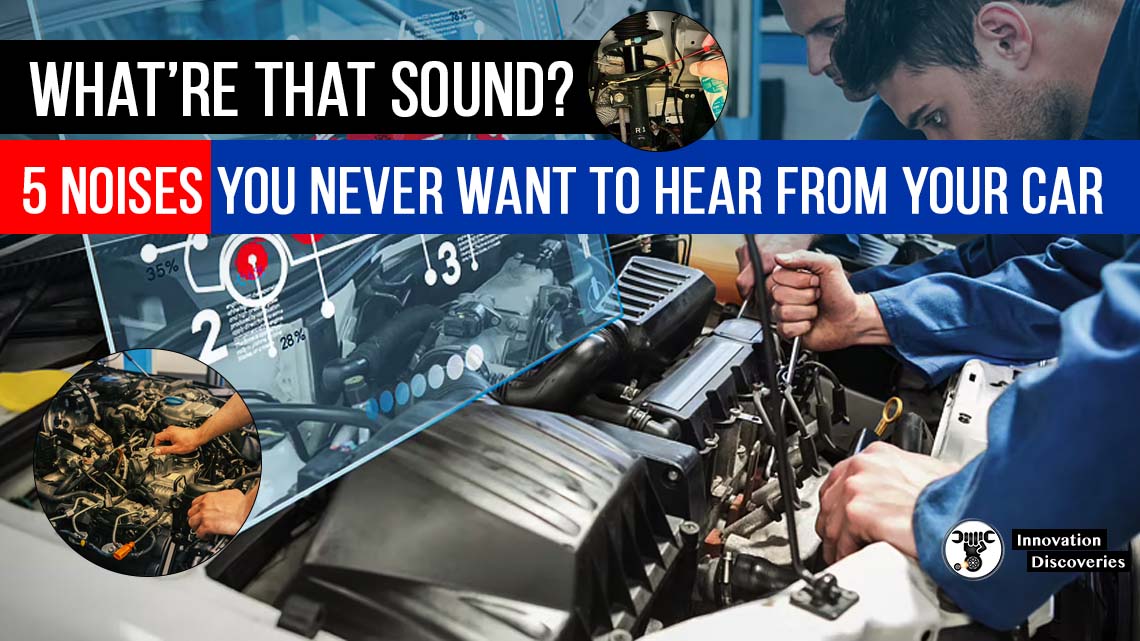
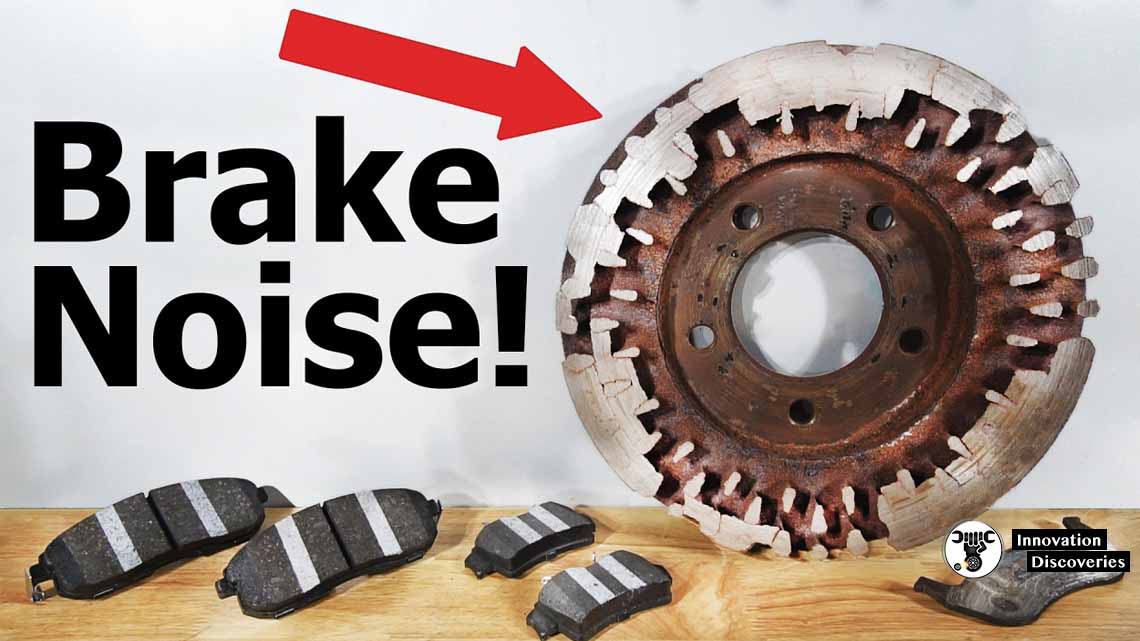
More About Braking Systems
- Top 5 Causes of Steering Wheel Shakes at Low and High Speeds
- HOW HYDRAULIC BRAKE WORKS?
- AIR BRAKE SYSTEM: COMPONENTS, WORKING PRINCIPLE, AND APPLICATIONS
- HOW DOES REGENERATIVE BRAKING WORK?
- 8 REASONS YOUR CAR IS MAKING GRINDING NOISE WHEN BRAKING
- Regenerative Braking System
- JAKE BRAKE VS. EXHAUST BRAKE: WHICH IS BETTER?
- SQUEALING BRAKES AT LOW SPEED: CAUSES AND SOLUTIONS
- TROUBLESHOOTING A HARD BRAKE PEDAL
- CONVERT DRUM BRAKES TO DISC BRAKES IN 3 STEPS!
- CAUSES OF THE BRAKE WARNING LIGHT COMING ON
Download: BRAKES, BRAKE CONTROL AND DRIVER ASSISTANCE SYSTEMS: FUNCTION, REGULATION AND COMPONENTS
READ: HOW HYDRAULIC BRAKE WORKS?
READ: All About Vehicle Sway bar
Also, read: The Importance of Measuring Brake Pad Thickness
Visit Forum
Visit Our Friendly Website


